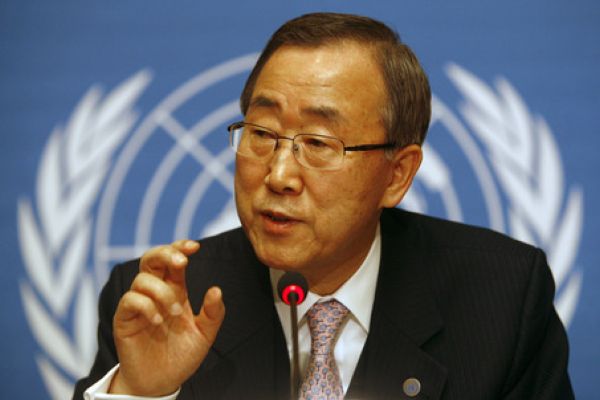The fourth and final report from the independent Expert Review Group on Information and Accountability for Women’s and Children’s Health (iERG) has being released and shared widely around the time of the September 2015 United National General Assembly that signaled the new Sustainable Development Goals (SDGs). The report signals the conclusion of an unusual experiment in global health. The 2011 Commission on Information and Accountability (CoIA) was a landmark moment for women and children. Born from the UN Secretary-General’s signature Every Woman, Every Child initiative, the Commission sought to mark a new era in the way progress was measured for two critically important Millennium Development Goals. The Commission redefined the meaning of “monitoring and evaluation” and “mutual accountability,” transforming a purely technical process of tracking indicators into a political process of evaluating those indicators transparently and democratically, judging the performance of institutions responsible for making promises and commitments to women and children, and acting on the results of those evaluations and judgements.
The report has buttressed that the model of accountability adopted sought to recognize the following;
- The continuum of care and service delivery, by requiring the engagement of communities; primary, secondary, and tertiary care; and rehabilitation, in the provision of services throughout the life course.
- At every level, the need for adequate and consistent monitoring; timely and comprehensive review; and appropriate remedial and concerted action by all stakeholders;
- The need to engage all stakeholders, and for each participant to be held accountable for their contribution; within a social, financial, and political accountability framework that operated at both national and international levels.
The independent Expert Review Group on Information and Accountability (iERG) was created in 2011 as a mechanism to strengthen accountability for women’s and children’s health. It was a body invented by the Commission on Information and Accountability (CoIA), chaired by President Kikwete of Tanzania and Prime Minister Harper of Canada. 2015 has been a year of reflection. The UN Secretary- General’s signature health initiative, Every Woman, Every Child, was launched in 2010. It has become one of the fastest growing movements in global health, attracting over 400 commitments by 300 partners, together with US$60 billion of financing.
Ban Ki-moon has observed that “The world is currently reducing under-5 and maternal deaths faster than at any time in history.” In 49 priority countries targeted by Every Woman, Every Child, achievements have been historic. 870 000 new health workers. A 49% increase in oral rehydration therapy for treating diarrhoeal disease. A 25% increase in skilled birth attendance. Progress has accelerated, and the Secretary-General’s Global Strategy for Women’s and Children’s Health has made a crucial contribution to this acceleration.
2015 has also been a year of transition. Ban Ki-moon has called the process leading to the post-2015 Sustainable Development Goals (SDGs), “The Road to Dignity”. 17 SDGs have been agreed upon, and health is one of those Goals (SDG-3). Women’s and children’s health is embedded within that Goal. In parallel, a new Global Strategy has been drafted to meet the challenge of a more inclusive and complex era. Agreement about the SDGs and the elements of a new Global Strategy does not mean that the approach to women and children is “business as usual.” There are already several critical differences in the approach and attitudes to women and children. The Global Strategy launched at the UN General Assembly has a draft five-year implementation plan and will be proposed for formal endorsement at the World Health Assembly in May 2016 with the following key Principles;
- Strong country ownership
- The highest-level and broad-based political support
- Added value
- Mobilizing ambitious and concrete multi-stakeholder action
- A human-rights based approach
- Aligning with SDGs and related processes and mechanisms
During the launch the United Nations Secretary-General Ban Ki-moon had announced over $25 billion in initial commitments spanning five years to help end preventable deaths of women, children and adolescents, and ensure their health and well-being.
The final iERG’s 2015 Report is leaving us with 3 powerful Recommendations for the Post-2015 Vision
- Global accountability: By 2016, establish and implement a global independent accountability mechanism to monitor, review, and act on results and resources for women’s, children’s, and adolescents’ health, working across all 17 SDGs, reporting annually to the UN Secretary-General.
- National accountability: By 2016, in all countries establish and implement transparent, participatory, democratic, and independent national accountability mechanisms to monitor, review, and act on results and resources for women’s, children’s, and adolescents’ health, with special attention to the translation of recommendations into action and reporting to Heads of State.
- Accountability for sustainability: In 2017, convene a global ministerial summit to report on progress towards the goals both of the new Global Strategy for Women’s, Children’s, and Adolescents’ Health and the SDGs relevant to women, children, and adolescents; and to report on how national accountability informs and strengthens global accountability.
In concluding as Africans and Nigerians, we should ask ourselves the hard questions; to what extend are we embedding accountability and transparency in our work? As we commence the post 2015 health agenda do we have transparent, participatory, democratic, and independent national accountability mechanisms that have the capacity to monitor, review, and act on results and resources for women’s, children’s, and adolescents’ health, with special attention to the translation of recommendations into action and reporting to our leaders? If the answer is NO, then this is the right time to start catalyzing action.
1st published in Daily Trust of 20th Oct 2015 by Dr Aminu Magashi Publisher Health Reporters (healthweekly@yahoo.com)




